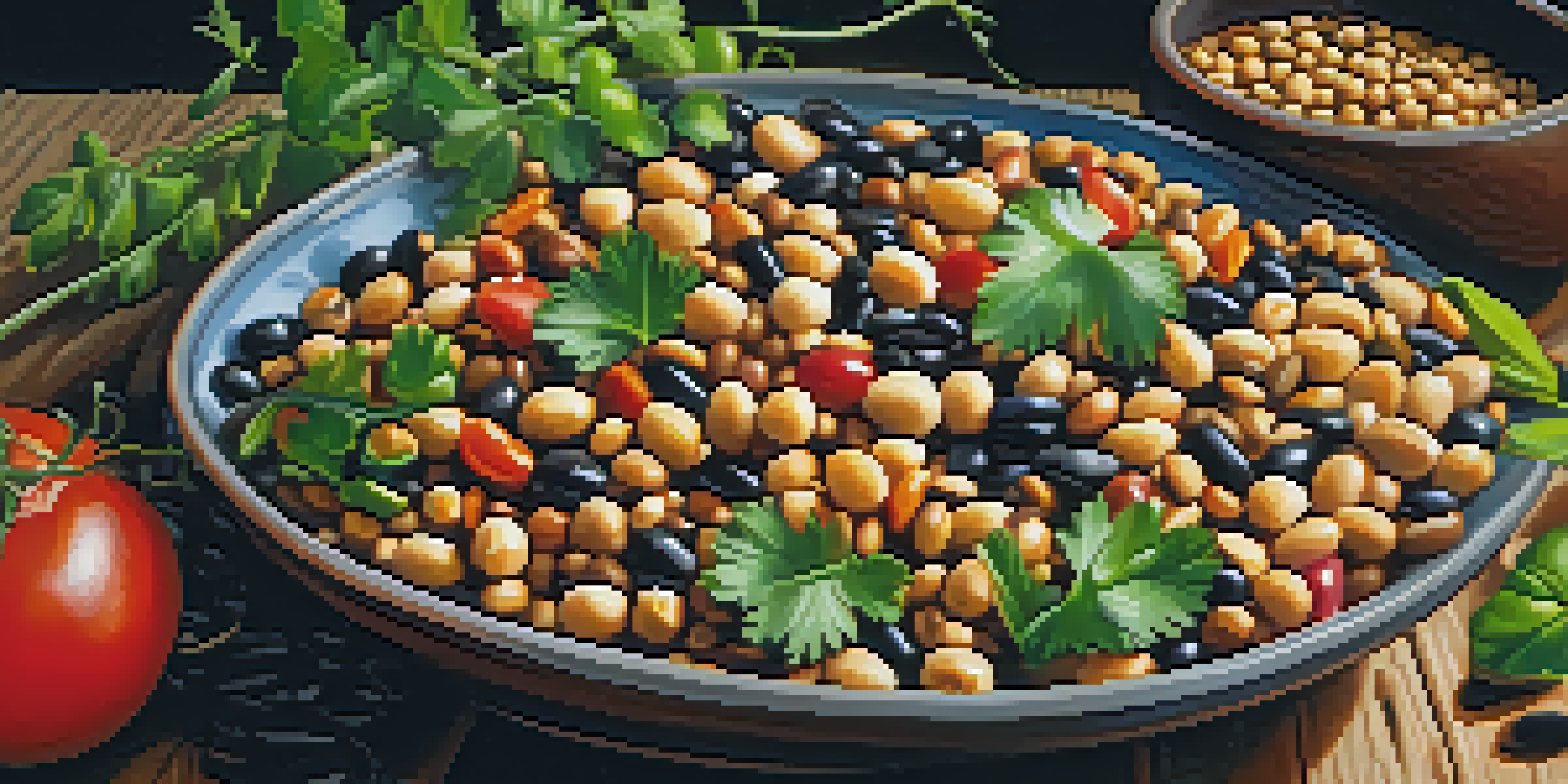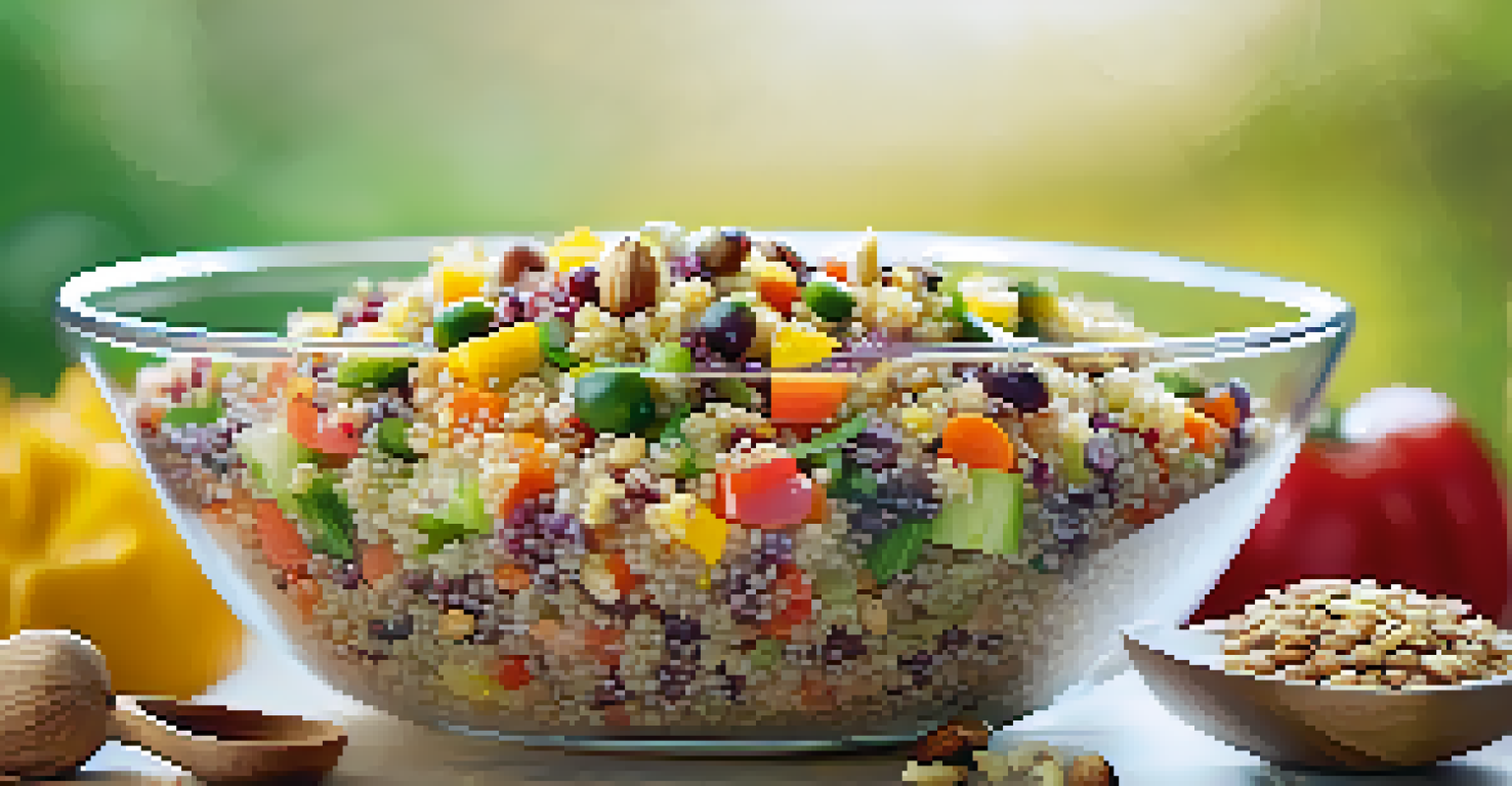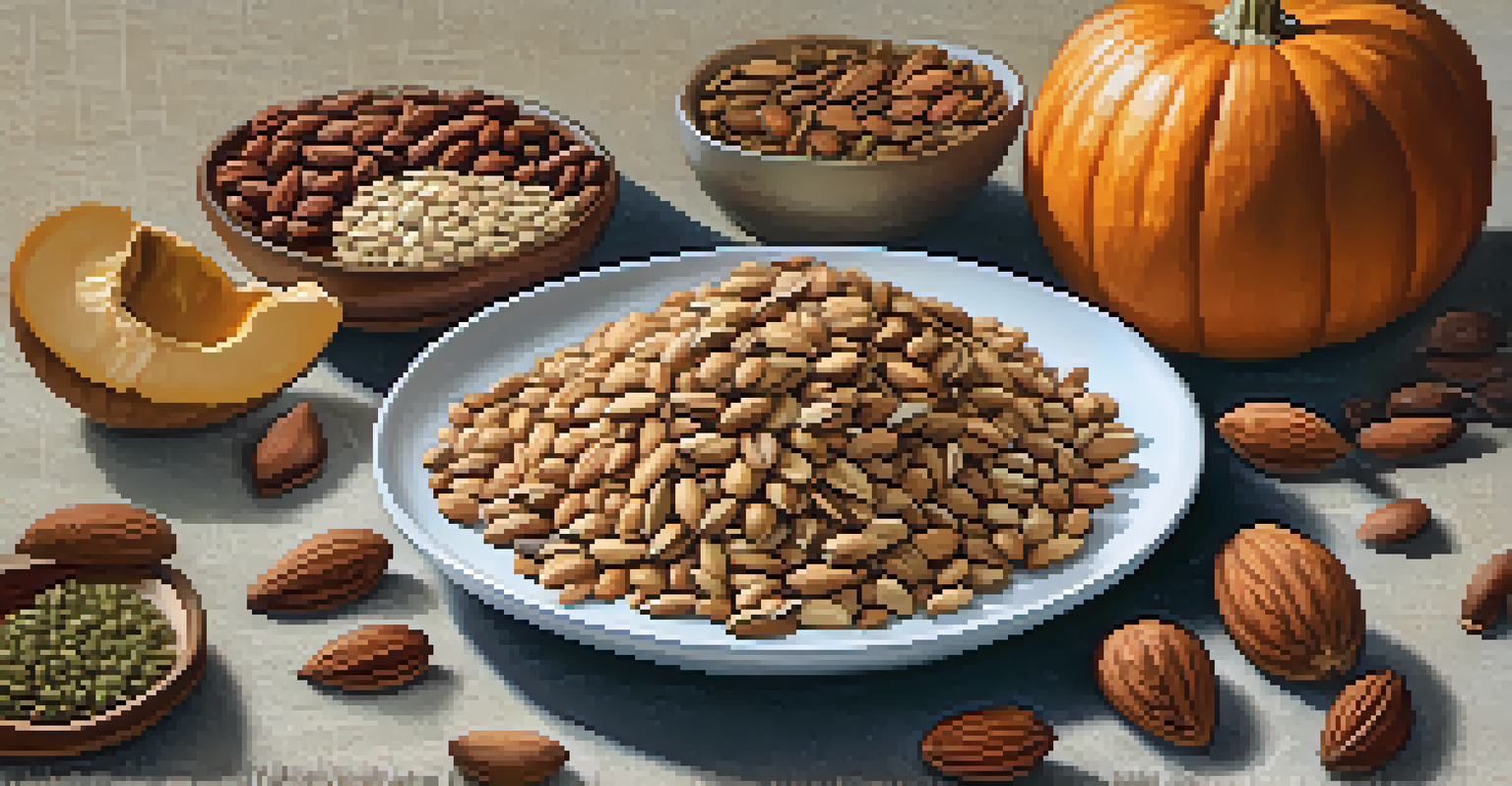Eco-Friendly Protein Sources for Sustainable Bodybuilding

Understanding Sustainable Bodybuilding and Protein Needs
Sustainable bodybuilding focuses on building muscle while being mindful of environmental impact. It encourages the use of eco-friendly protein sources that provide essential nutrients without depleting natural resources. The goal is to foster a healthier planet alongside personal fitness.
The greatest threat to our planet is the belief that someone else will save it.
In bodybuilding, protein is crucial for muscle repair and growth. Traditional protein sources, like meat, can have a hefty carbon footprint and contribute to environmental degradation. By exploring alternative protein options, bodybuilders can achieve their fitness goals while reducing their ecological impact.
Transitioning to sustainable protein doesn't mean sacrificing quality or flavor. Many eco-friendly options are not only nutritious but can also enhance the diversity of your diet. Let’s dive into some top choices that support both your bodybuilding journey and the planet.
Legumes: The Powerhouses of Plant-Based Protein
Legumes, such as lentils, chickpeas, and black beans, are fantastic protein sources that are also rich in fiber and essential nutrients. They are incredibly versatile and can be used in a variety of dishes, from hearty stews to protein-packed salads. Incorporating legumes into your meals can significantly boost your protein intake without costing the earth.

Beyond their nutritional benefits, legumes have a low environmental impact. They require less water and land than animal protein sources and can even improve soil health through nitrogen fixation. This means that by choosing legumes, you’re not just fueling your body but also supporting sustainable agriculture.
Sustainable Protein Sources Matter
Choosing eco-friendly protein options, like legumes and quinoa, can help bodybuilders meet their nutritional needs while reducing their environmental impact.
Incorporating legumes into your diet can be as simple as adding them to your favorite recipes or preparing them as a main dish. Experimenting with different legumes can keep your meals interesting while meeting your protein needs effectively.
Quinoa: The Complete Protein Grain
Quinoa is often hailed as a superfood, and for good reason. This ancient grain is not only high in protein but also contains all nine essential amino acids, making it a complete protein. This property is especially beneficial for bodybuilders looking to maximize muscle recovery and growth.
We won't have a society if we destroy the environment.
Additionally, quinoa is gluten-free and easy to digest, making it an excellent option for those with dietary restrictions. Its nutty flavor and fluffy texture lend themselves well to a variety of dishes, from breakfast bowls to grain salads. You can easily incorporate quinoa into your meal prep for a protein-rich boost.
Choosing quinoa also supports sustainable farming practices, as it typically requires fewer resources compared to traditional grains. By opting for quinoa, you're making a conscious choice that benefits your health and the environment.
Nuts and Seeds: Nutrient-Dense Protein Options
Nuts and seeds are packed with protein, healthy fats, and a variety of vitamins and minerals. Almonds, chia seeds, and pumpkin seeds are just a few examples of nutrient-dense options that can be sprinkled on salads, blended into shakes, or enjoyed as snacks. They not only provide protein but also contribute to overall health and wellness.
These power-packed foods are also incredibly versatile. Whether you’re making nut butter, adding seeds to smoothies, or throwing a handful of nuts into your oatmeal, the possibilities are endless. Plus, they add a satisfying crunch and flavor to your meals.
Legumes and Grains Boost Nutrition
Incorporating legumes and grains like quinoa into your diet provides essential amino acids and nutrients crucial for muscle growth and recovery.
From an environmental perspective, nuts and seeds generally have a lower carbon footprint compared to animal-based proteins. By incorporating these foods into your diet, you’re choosing a path that supports both your bodybuilding goals and the planet.
Tofu and Tempeh: Soy-Based Protein Alternatives
Tofu and tempeh are excellent soy-based protein sources that are popular in plant-based diets. Tofu is made from soy milk and has a mild flavor, making it incredibly adaptable to various dishes. Tempeh, on the other hand, is fermented soybeans, offering a nuttier taste and a firmer texture, perfect for grilling or stir-frying.
Both options are rich in protein and contain essential amino acids, making them suitable for muscle repair and growth. They can be marinated, grilled, or sautéed to add variety to your meals. Plus, they are an excellent source of calcium and iron, which are vital for overall health.
By choosing tofu and tempeh, you’re not only supporting your bodybuilding efforts but also opting for sustainable protein sources. Soy farming can be done responsibly, reducing the overall environmental impact compared to livestock farming.
Insects: The Next Frontier in Sustainable Protein
While it might sound unconventional, insects are emerging as a sustainable protein source. They are incredibly efficient to farm, requiring far less land, water, and feed than traditional livestock. Insects like crickets and mealworms are high in protein and can be processed into protein powders or snacks.
In addition to their low environmental impact, insects provide essential nutrients, including vitamins, minerals, and healthy fats. They are already a staple in many cultures around the world, and their inclusion in modern diets is gaining traction. Embracing insects as a protein source can be a bold yet environmentally friendly choice.
Embrace an Eco-Friendly Lifestyle
Adopting an eco-friendly approach in bodybuilding includes reducing food waste and choosing local produce to enhance both health and sustainability.
As more people explore the benefits of insect protein, it’s becoming easier to find products that incorporate them. Whether it’s protein bars or flour, these innovative options can help you meet your dietary needs sustainably.
Embracing an Eco-Friendly Lifestyle in Bodybuilding
Transitioning to eco-friendly protein sources is just one part of a sustainable bodybuilding journey. It’s essential to consider other aspects of your lifestyle, such as food waste reduction and mindful consumption. By focusing on whole foods and minimizing processed options, you can further enhance your health and the environment.
Incorporating seasonal and local produce can also support sustainable practices. This not only reduces your carbon footprint but also often results in fresher and tastier meals. Engaging with local farmers' markets or community-supported agriculture can help you make informed choices about your food sources.

Ultimately, adopting an eco-friendly approach to bodybuilding is about balance. It’s about finding the right protein sources that align with your values, dietary needs, and fitness goals while contributing positively to the planet.
Conclusion: Build Muscle, Save the Planet
As you explore eco-friendly protein sources for bodybuilding, remember that your choices can have a significant impact on both your health and the environment. By integrating plant-based proteins, such as legumes, quinoa, nuts, and even insects, you can support muscle growth while promoting sustainability.
Making these dietary shifts may require some experimentation and creativity in the kitchen, but the rewards are well worth it. Not only will you fuel your body with high-quality nutrition, but you’ll also play a role in fostering a more sustainable future.
In the end, bodybuilding doesn’t have to come at the cost of the planet. By choosing eco-friendly protein options, you can build muscle sustainably and inspire others to do the same.